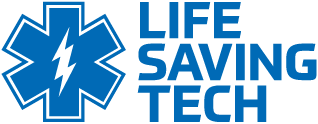In collaboration with the American College of Surgeons, Lifesaving Technologies is advancing a nationwide effort to place lifesaving equipment, training, and trauma awareness directly into communities. At its core is a simple idea: when everyday people are prepared to respond, lives are saved.
Helping Bystanders Become Lifesavers Through Innovation and Access.
A Global Partnership to Empower Everyday Responders.
The Trauma Chain of Survival includes five different stages:
Immediate aid from someone nearby
Bystander Care



.png)
Stabilization and transport
Prehospital EMS
Surgical and medical intervention
Hospital Care

.png)

Physical and occupational therapy
Early Rehab
.png)
.png)
Support after discharge
Reentry & Recovery
ACS Emergency Aid Stations are designed to support the earliest links in this chain, equipping bystanders and first responders with the tools they need to act decisively before patients reach the trauma center. Together, our efforts focus on strengthening the first two links, where rapid intervention can mean the difference between life and death.
The Trauma Chain of Survival includes five different stages:
Immediate aid from someone nearby
Bystander Care



.png)
Stabilization
and transport
Prehospital EMS
Surgical and medical intervention
Hospital Care

.png)

.png)
Physical and
occupational therapy
Early Rehab
.png)
Support after
discharge
Reentry & Recovery
ACS Emergency Aid Stations are designed to support the earliest links in that chain—equipping bystanders and first responders with the tools they need to take swift, decisive action before professional care arrives. Together, our efforts focus on strengthening the first two links—where rapid intervention can mean the difference between life and death.
“The Trauma Chain of Survival highlights what we’ve always known: survival doesn’t begin at the hospital, it begins in the field. The earlier someone acts, the greater the chance of saving a life.”
.png)
Jeffrey D. Kerby, MD, PhD, FACS,
Chair of the ACS Committee
on Trauma
Turning Readiness into Action.



Our Role Includes:
-
Facilitating access to ACS Stop the Bleed training
-
Deploying ACS-authorized Emergency Aid Stations and bleeding control equipment
-
Partnering with institutions and local leaders to drive implementation
-
Supporting community-led fundraising
-
Work to secure corporate and foundation sponsorships to expand access
As a licensed partner of the American College of Surgeons, Lifesaving Technologies helps communities get trained, get equipped, and get funded. This brings lifesaving readiness to the local level.
We partner with schools, workplaces, unions, municipalities, and concerned citizens to turn trauma readiness from a distant ideal into something real, not someday but now.






